This website uses cookies so that we can provide you with the best user experience possible. Cookie information is stored in your browser and performs functions such as recognising you when you return to our website and helping our team to understand which sections of the website you find most interesting and useful.
Shabo Territorial Community
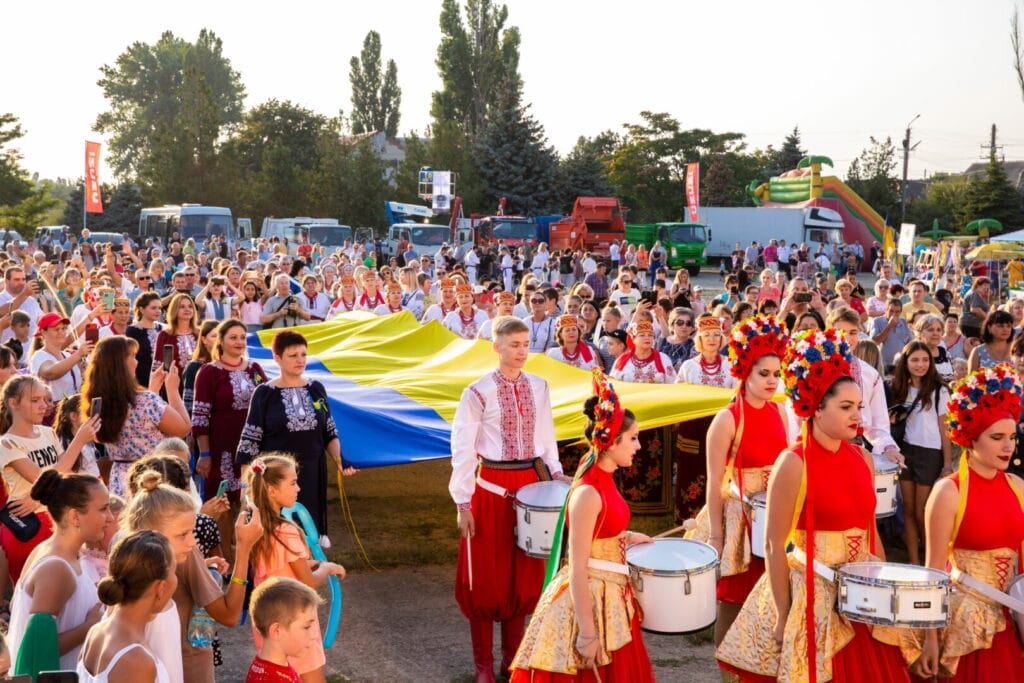
The Shabo Territorial Community is located in the territory of the Bilhorod-Dnistrovsky District in the Odesa Region.
The total area of the territory is 631 km2.
The population of the Community totals 16,639 residents.
Women; 7,286 residents
Men: 5,989 residents
Children under 17: 2,619 residents
Internally displaced persons: 745 people
The Community consists of fourteen settlements. The administrative centre of the Community is located in the village of Shabo.
History
The administrative centre of the territorial community is the village of Shabo. It also bears the name of a wine brand.
The first Tatar settlement appeared there about 500 years ago. The earliest evidence of the existence of Shabo was recorded in the form of “Asha-Abagh” in 1788. In Turkish Asha-Abag means “Lower Gardens”. Back then, gardens meant vineyards. Due to difficulties in pronunciation, the village was renamed “Shabo” in the French manner.
In 1822, a wine-making settlement was founded there. The founder of the vineyard colony wrote: “If you want to see heaven on earth, you won’t find a better place.”
Thanks to the unique characteristics of the territory and the hard work of Swiss immigrants, this area gradually turned into a wine-growing region. It is with the Swiss immigrants that the beginning of the high culture of viticulture and winemaking is associated in this region.
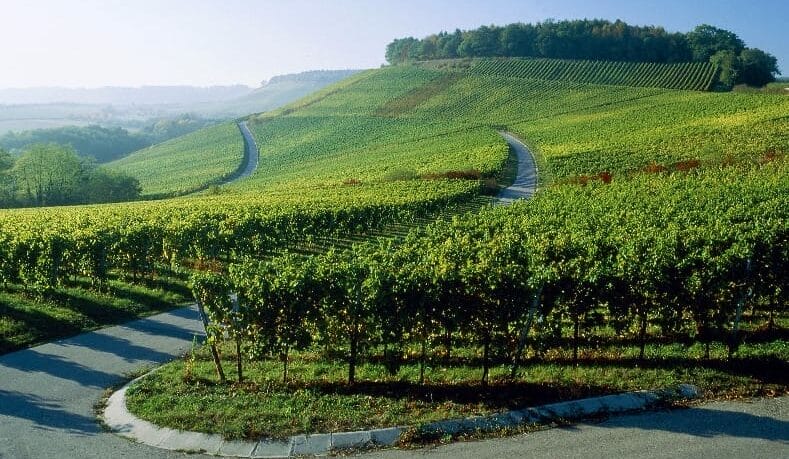
In 1805, an architectural landmark of local importance was built there – the St. Nicholas Church, which still functions today. There is a healing spring of St. Nicholas near the church.
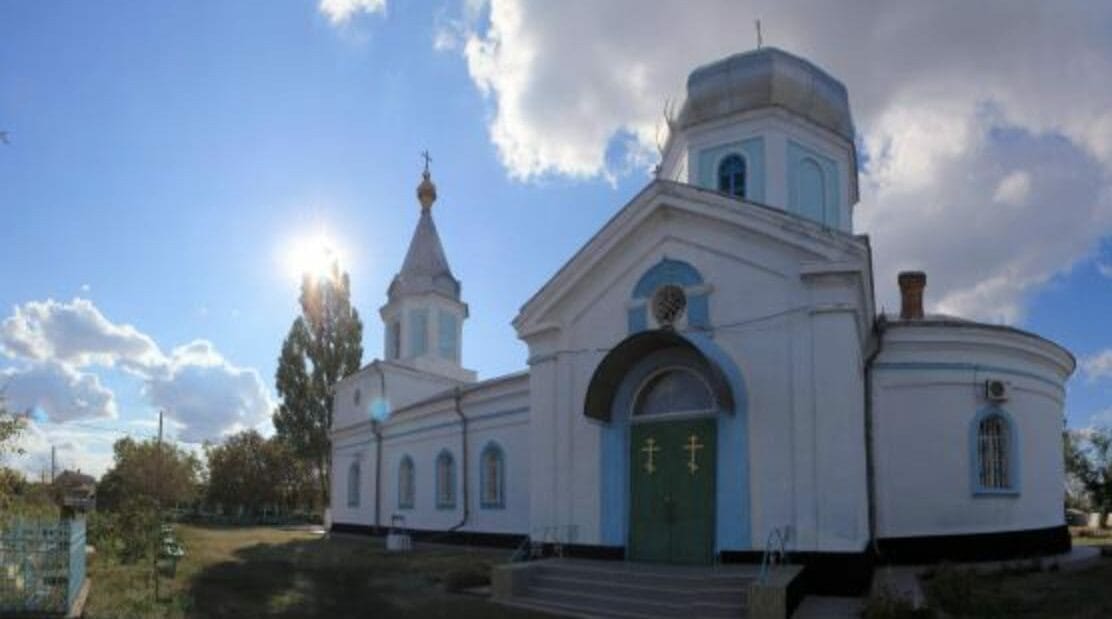
Economy and Welfare
Shabo is a brand that defines the investment and tourist attractiveness of the Community.
Shabo Industrial and Trading Company LLC is a family business based on wine traditions that are more than 200 years old. Since 2003, 1,200 hectares of vineyards have been producing Great Wines that are recognized all over the world. The company’s products have received over 500 awards at the world’s most prestigious contests and are exported to 22 countries.
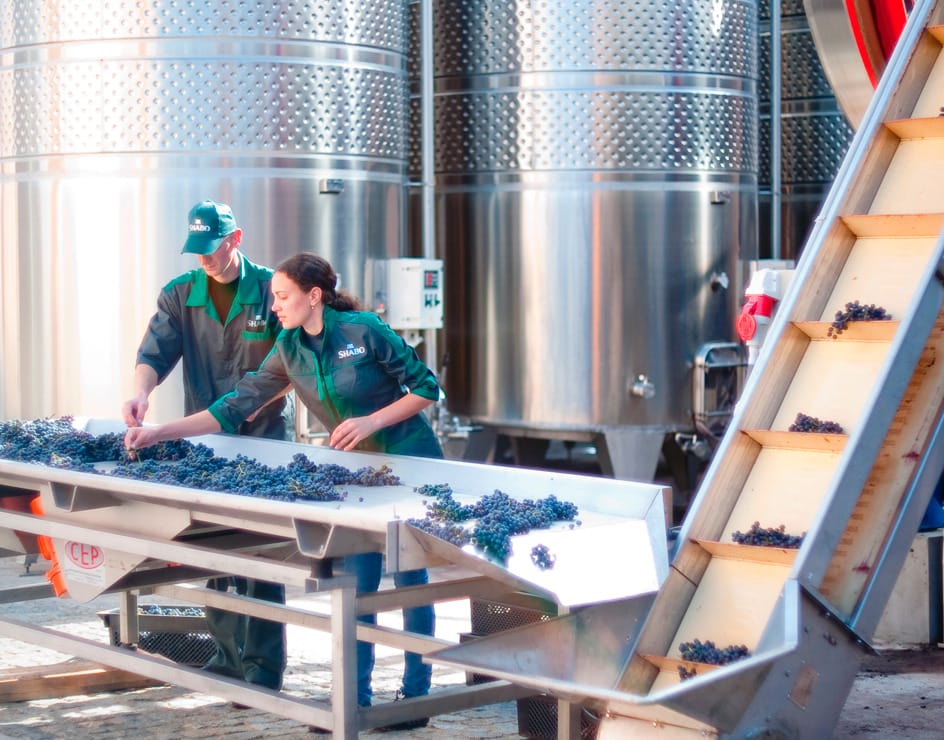
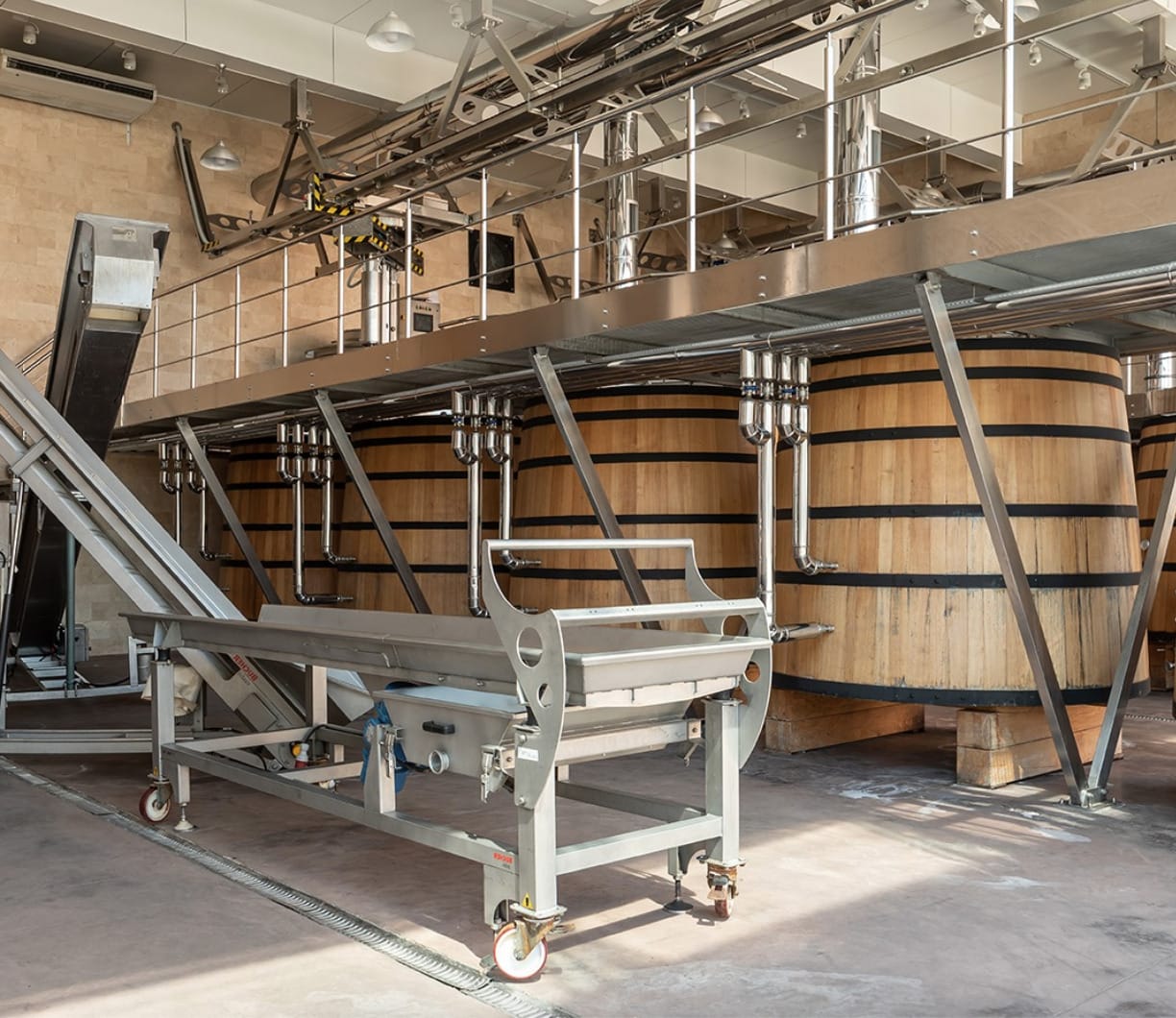
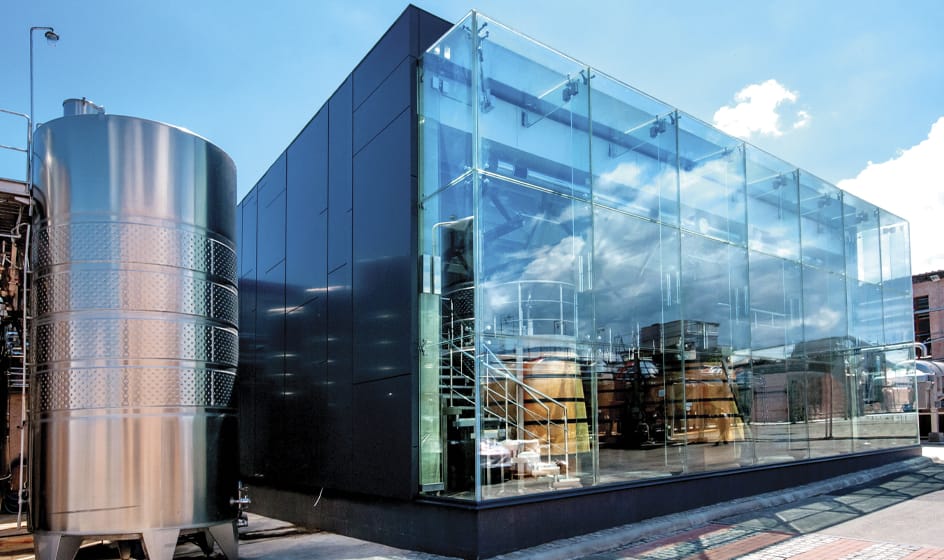
The SHABO Wine Culture Centre is located in the company’s territory. There are two-hundred-year-old Swiss cellars, modern art objects, museums, cinemas, a musical fountain, professional tastings and large-scale production. Everyone can see where noble drinks are created and feel part of Ukrainian winemaking. This is where the pride and social responsibility of SHABO has been embodied, where winemaking is considered an art, and winemaking a culture, in which proper consumption plays an important role.
120 seconds SHABO / Source: Company’s YouTube
In the territory of the Community there is a progressive and innovative enterprise Firma Elips PJSC. One of the most powerful in Ukraine has been the leader in the market of rigid polymer packaging in Ukraine for years.
The main area of the company’s operations is the development, implementation and production of polymer containers: bottles, cans, containers; packaging, sealing means and accessories for the medical, perfumery and cosmetic, food, agricultural and chemical industries.

Agriculture and fisheries, cultivation and harvesting of grain and leguminous crops are of great importance in the economic system of the Community.
A modern cheese factory operates in the territory of the Community. It is built according to a European model, combining the latest equipment from Holland, with their original technologies and Ukrainian master cheesemakers.
The cheese factory has a closed production cycle, from growing fodder for cows and calves, keeping Holstein-Friesian livestock to processing dairy raw materials and obtaining the final product – high-quality natural cheese.


Community and War
In 2014, the Odesa Region faced the onslaught of russia for the first time. Back then they tried to hold anti-Ukrainian rallies and seize the administration there.
The full-scale invasion in 2022 affected all the aspects of the life of the Community and its residents.
The road and railway bridge across the Dniester estuary was destroyed following russian missile attacks on civilian facilities. It was the only one that connected the southern part of the Odesa Region with the mainland of Ukraine.

The village of Bilenke of the Shabo Community was in the territory of active hostilities. The territory of the Community was hit by rockets and saw the destruction of and damage to recreation facilities, residential buildings, a music school, culture centres, road and transport infrastructure.
The Shabo Community still suffers constant rocket attacks with forty-eight facilities having been damaged in July 2023.
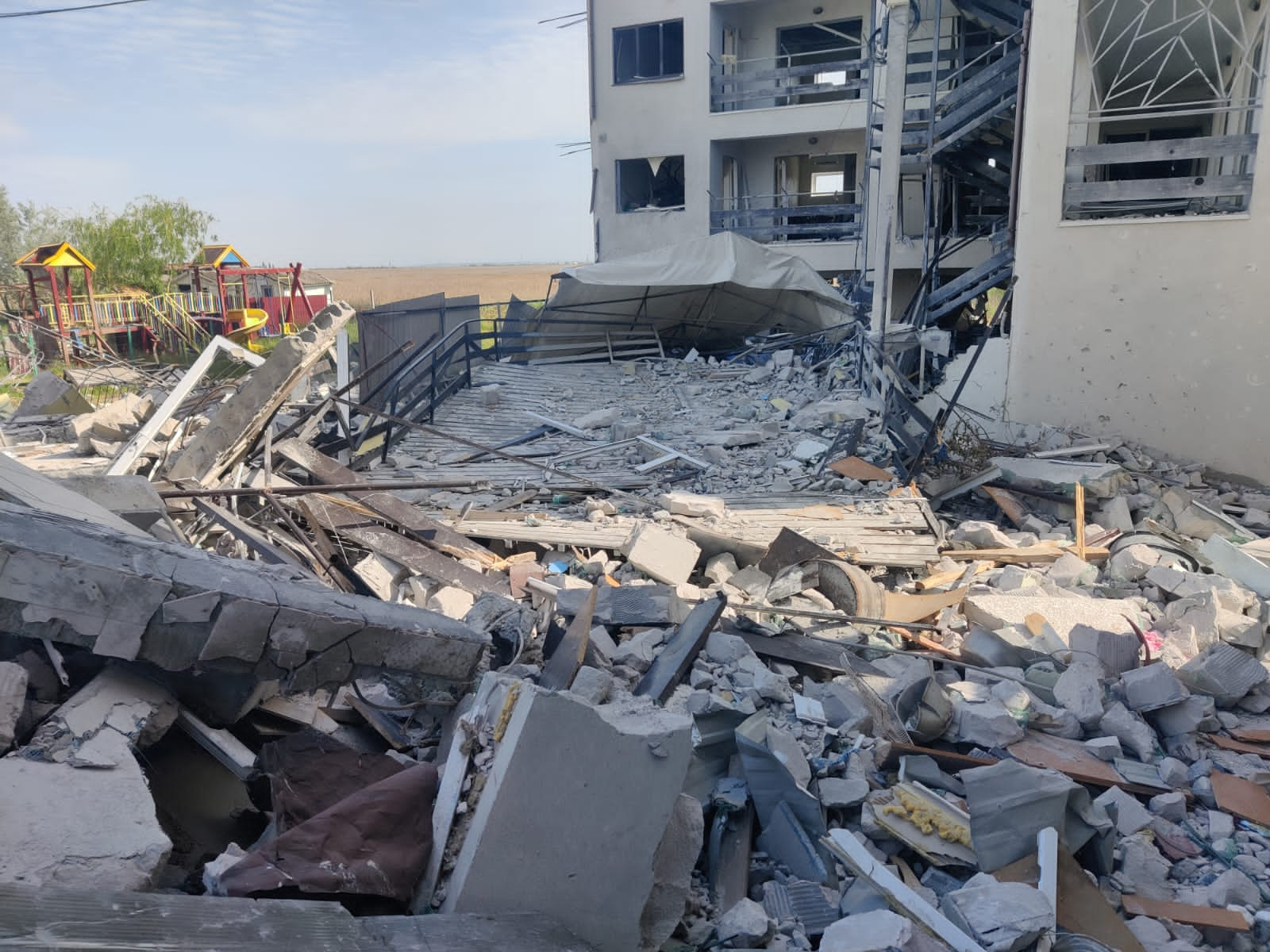
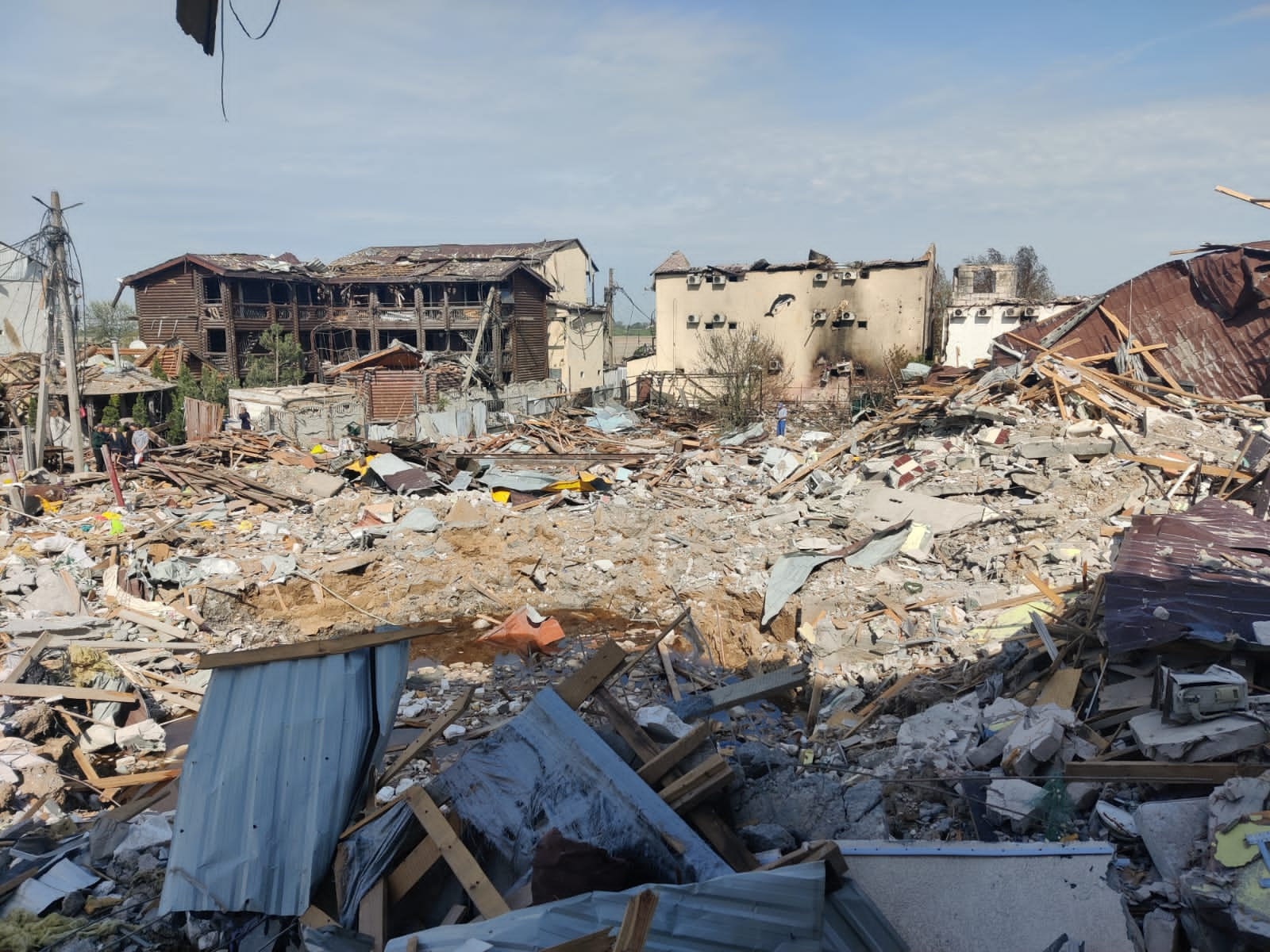
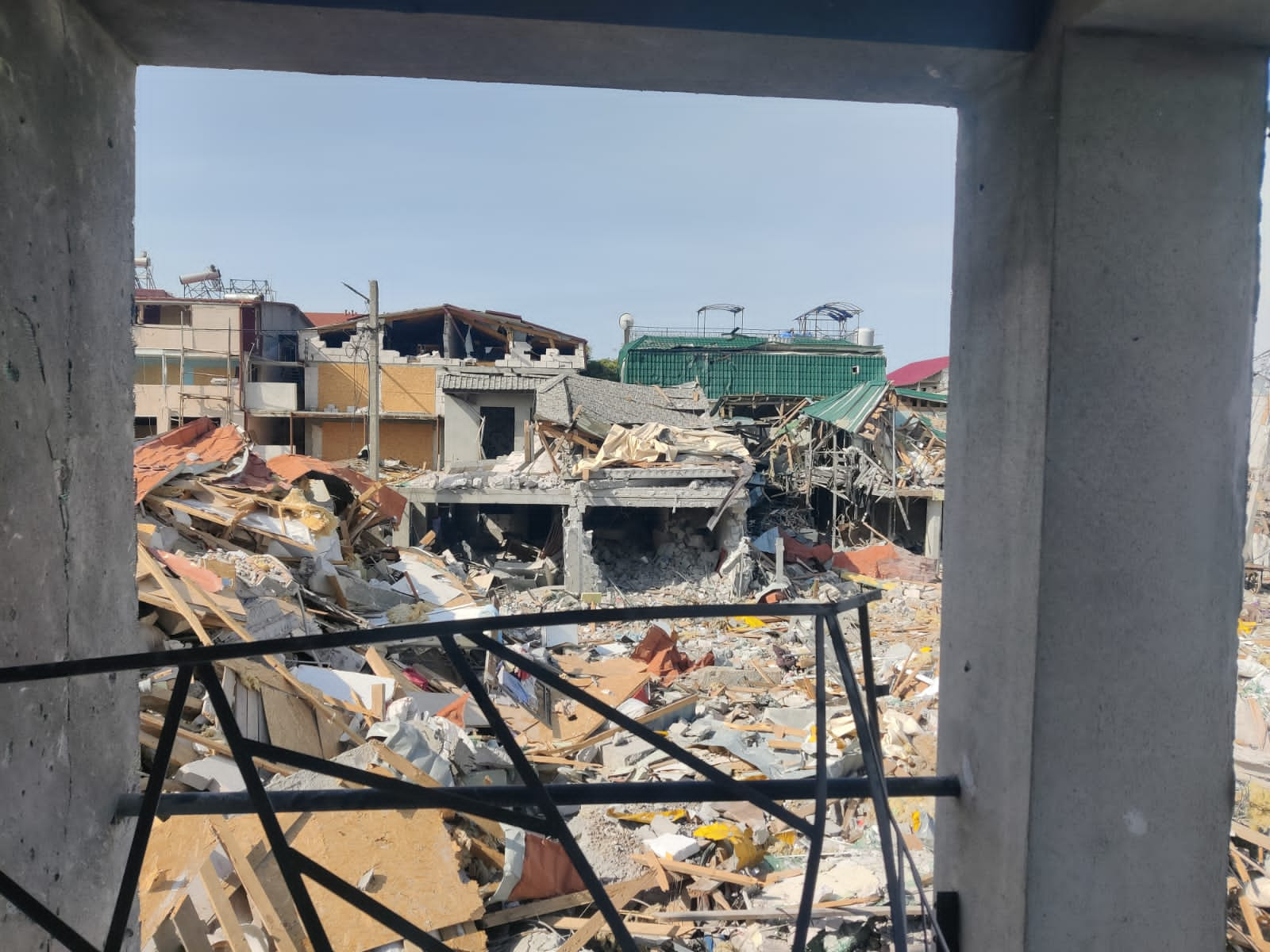
Choosing the right to live in an independent Ukraine, everyone there wants to be useful and bring victory closer. Since the war broke out, the community has been engaged in weaving nets for the military, collecting clothes and hygiene products, organizing food and accommodation for the military. Funds are allocated for their needs from the Community budget.
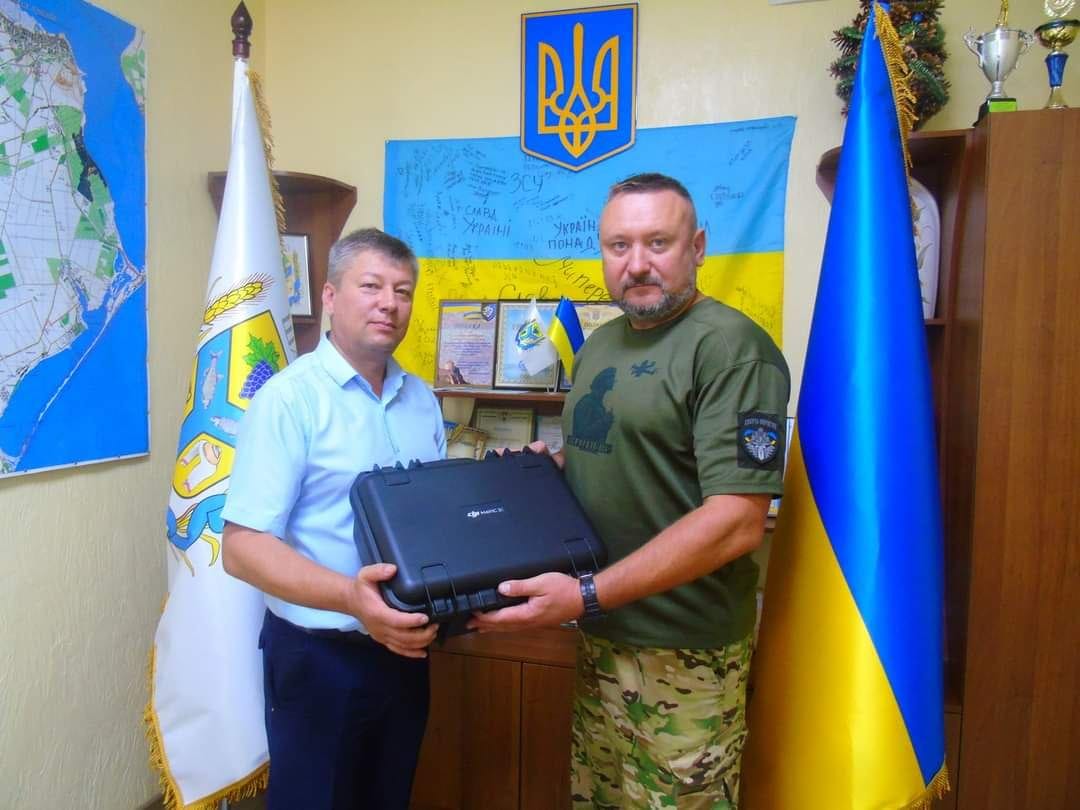
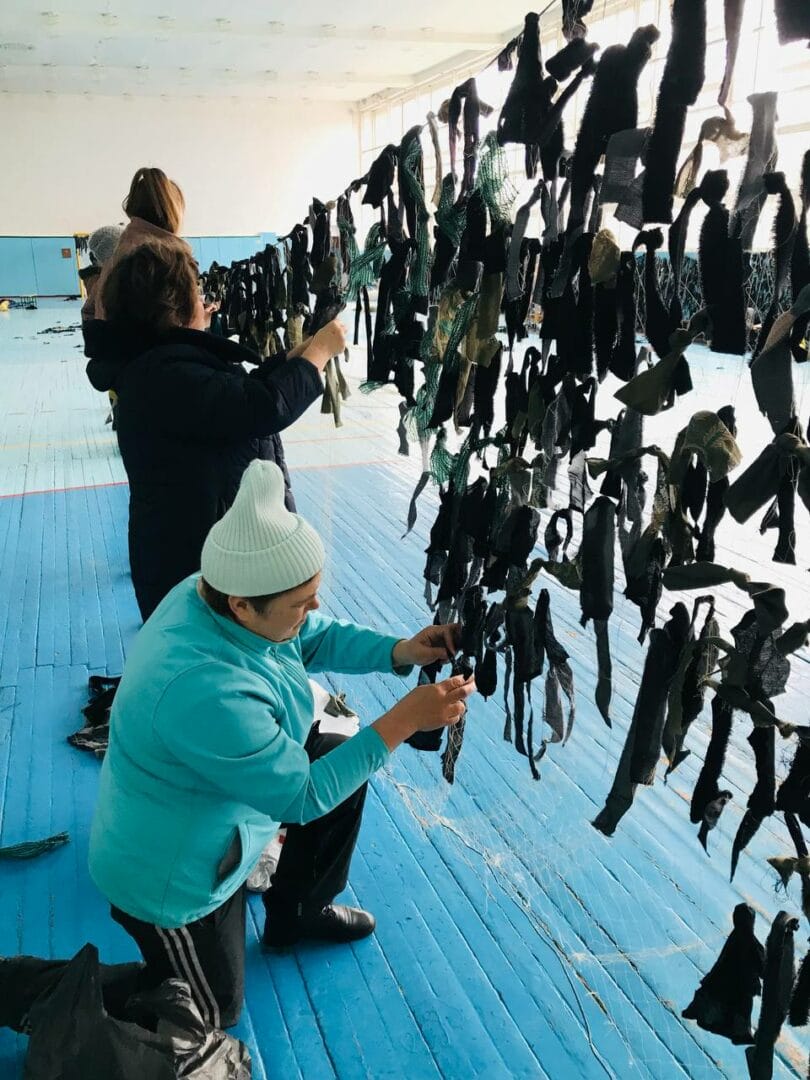
Since the beginning of the war, the Community has taken in more than 1,000 internally displaced persons. Now 745 immigrants live there, for whom the Shabo Community has become their second home.
In addition to humanitarian aid, the displaced people are provided with fodder for keeping domestic animals and birds; sets of vegetable seeds for sowing in their own vegetable gardens, potato seeds. As a result, the residents can grow their own food. Psychological assistance is provided to victims, master classes are held for children of the community and internally displaced persons.
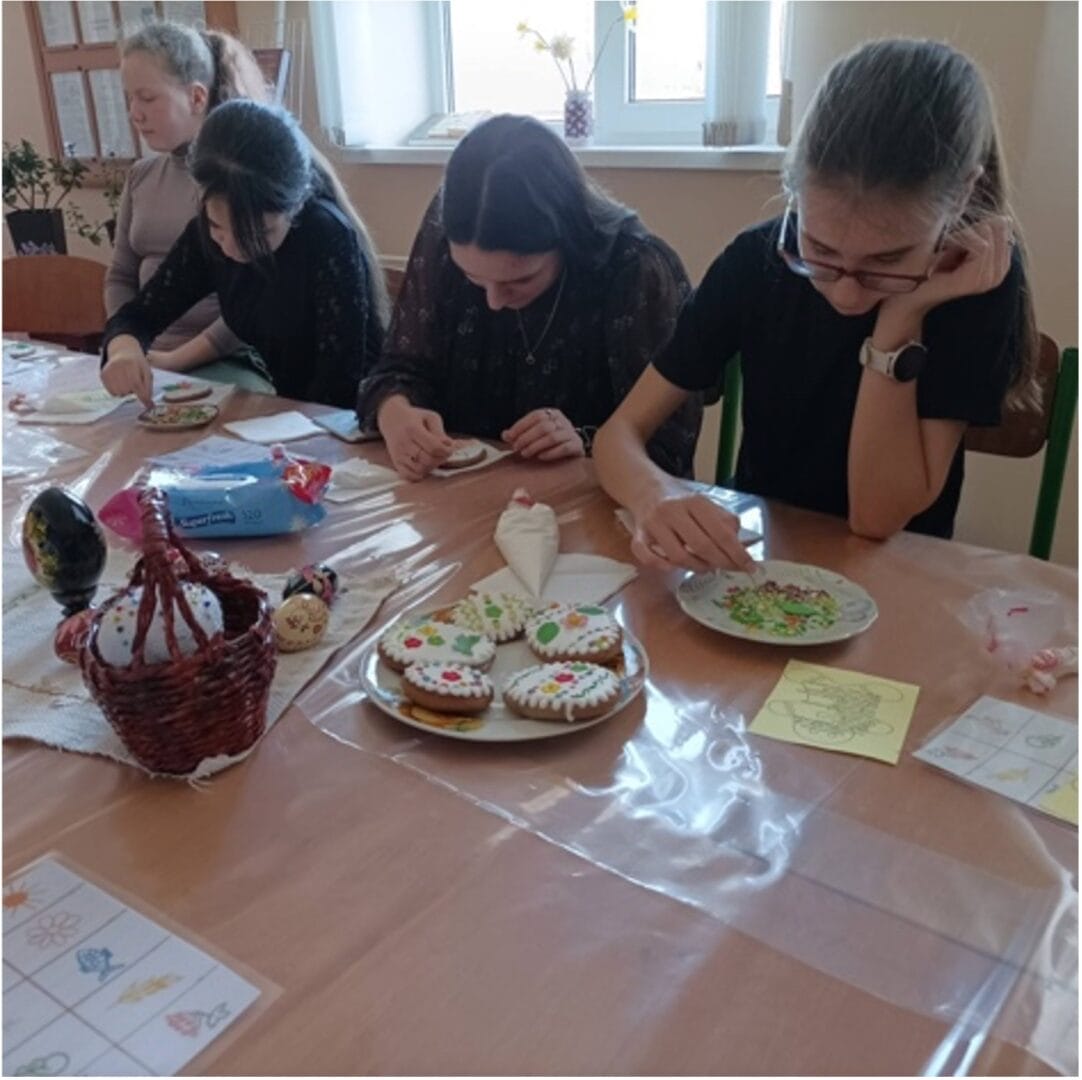
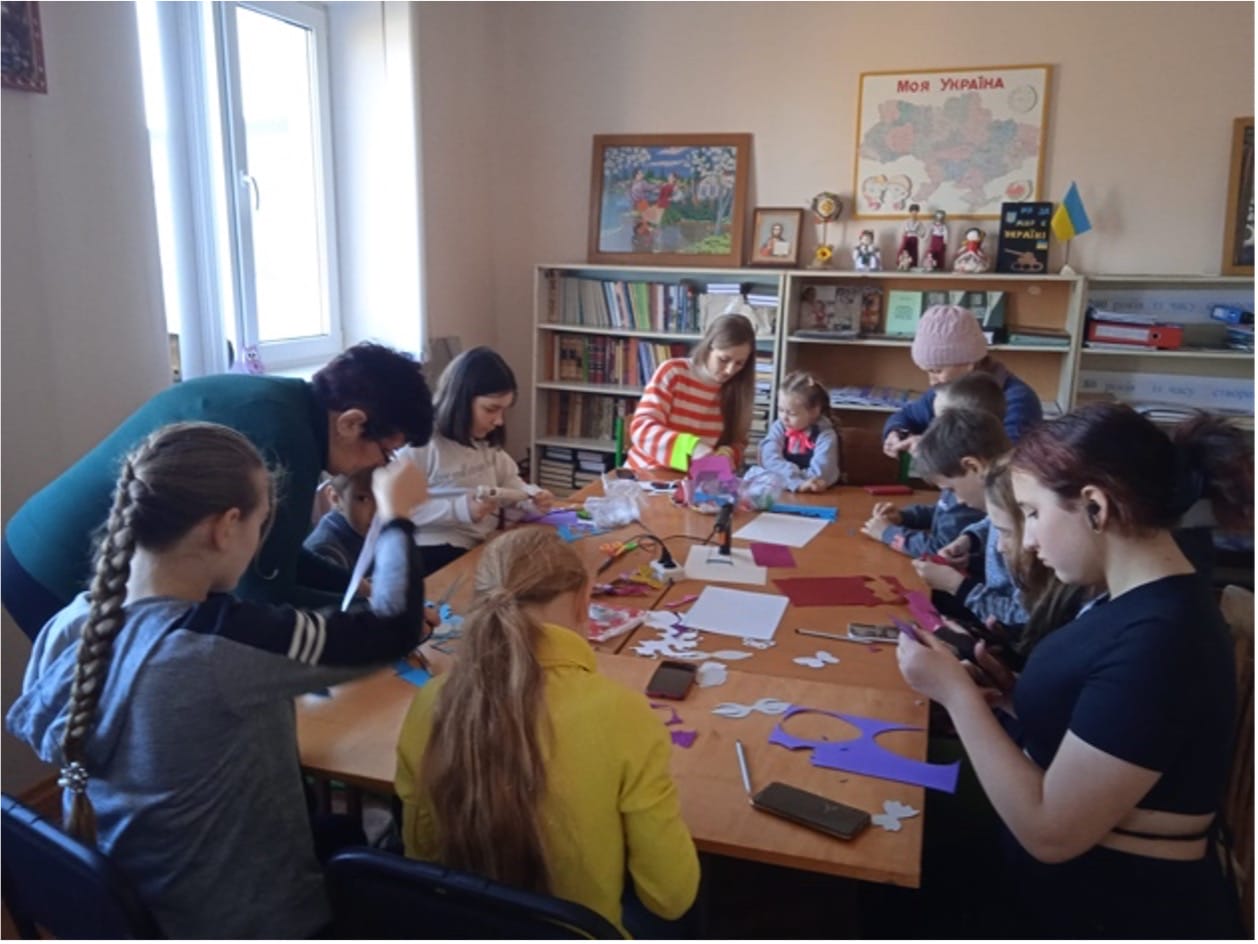
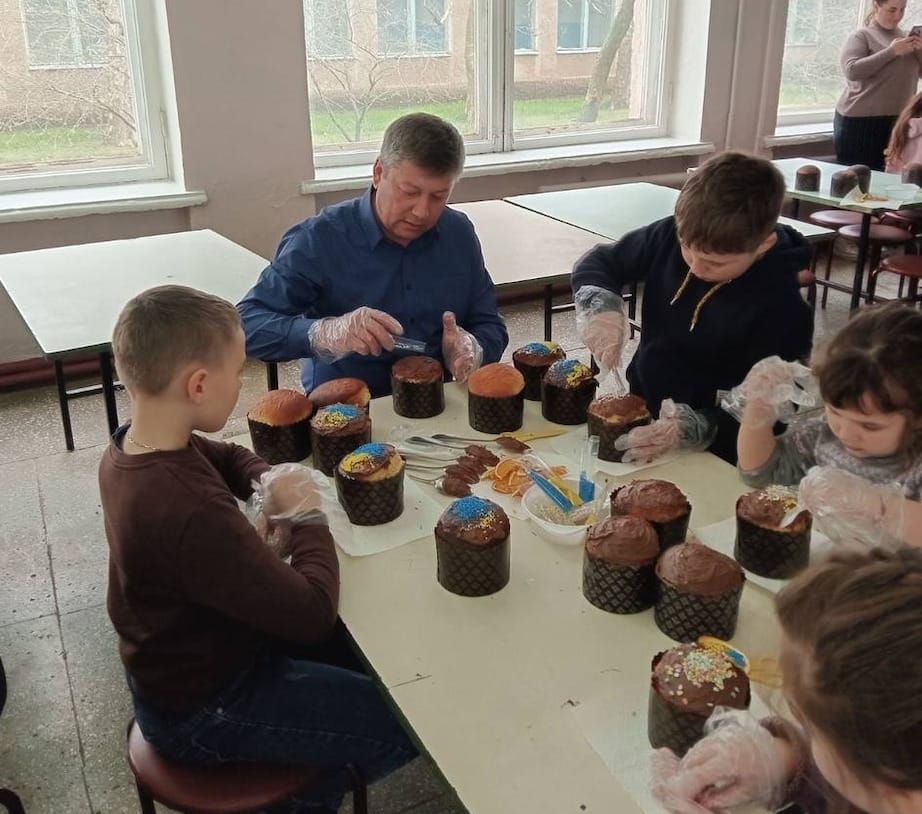
The Shabo Community does not stand aside from other people’s grief. As a result of another rocket attack, the neighbouring community suffered significant destruction. An amount of UAH 150,000 was allocated from the budget of the Shabo Community for the restoration of damaged housing. Help was given in the removal of debris and medical equipment was provided for paramedics and midwives located in the community.
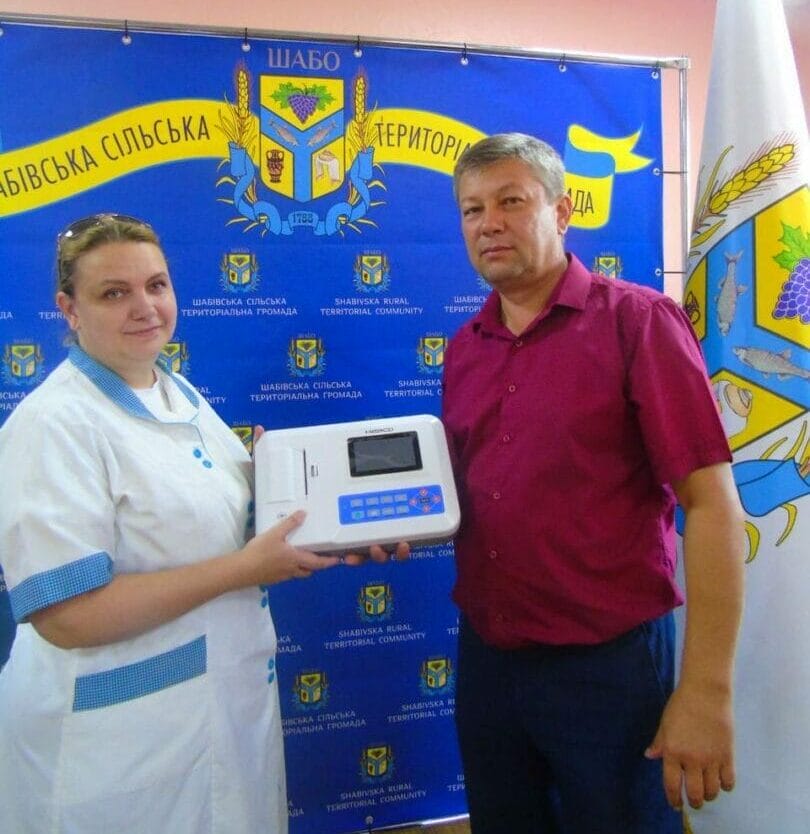
To ensure the implementation of the educational process, shelters have been arranged at schools and preschools, and a new civil defence facility has been organized under the administrative building of the Village Council.
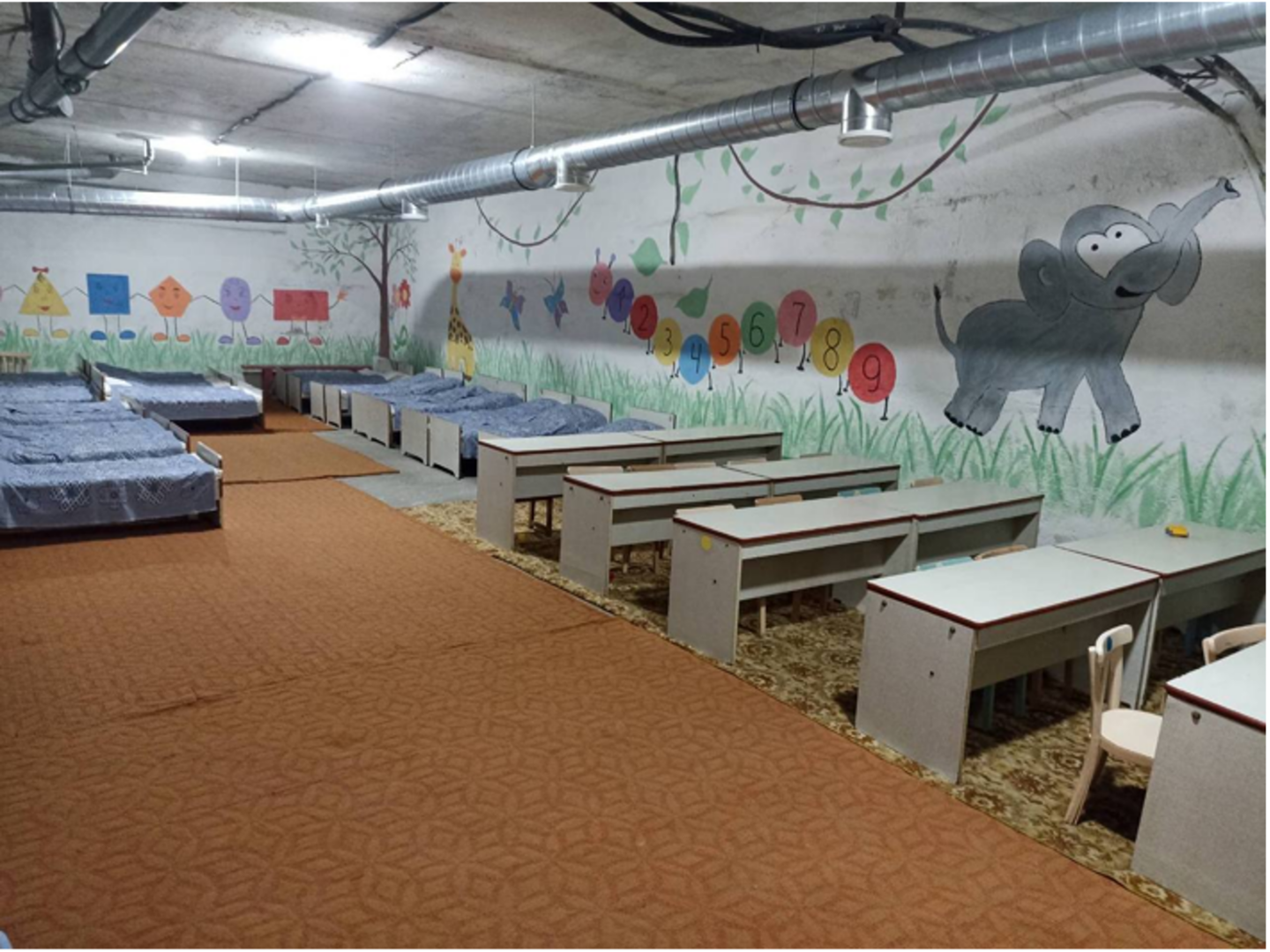
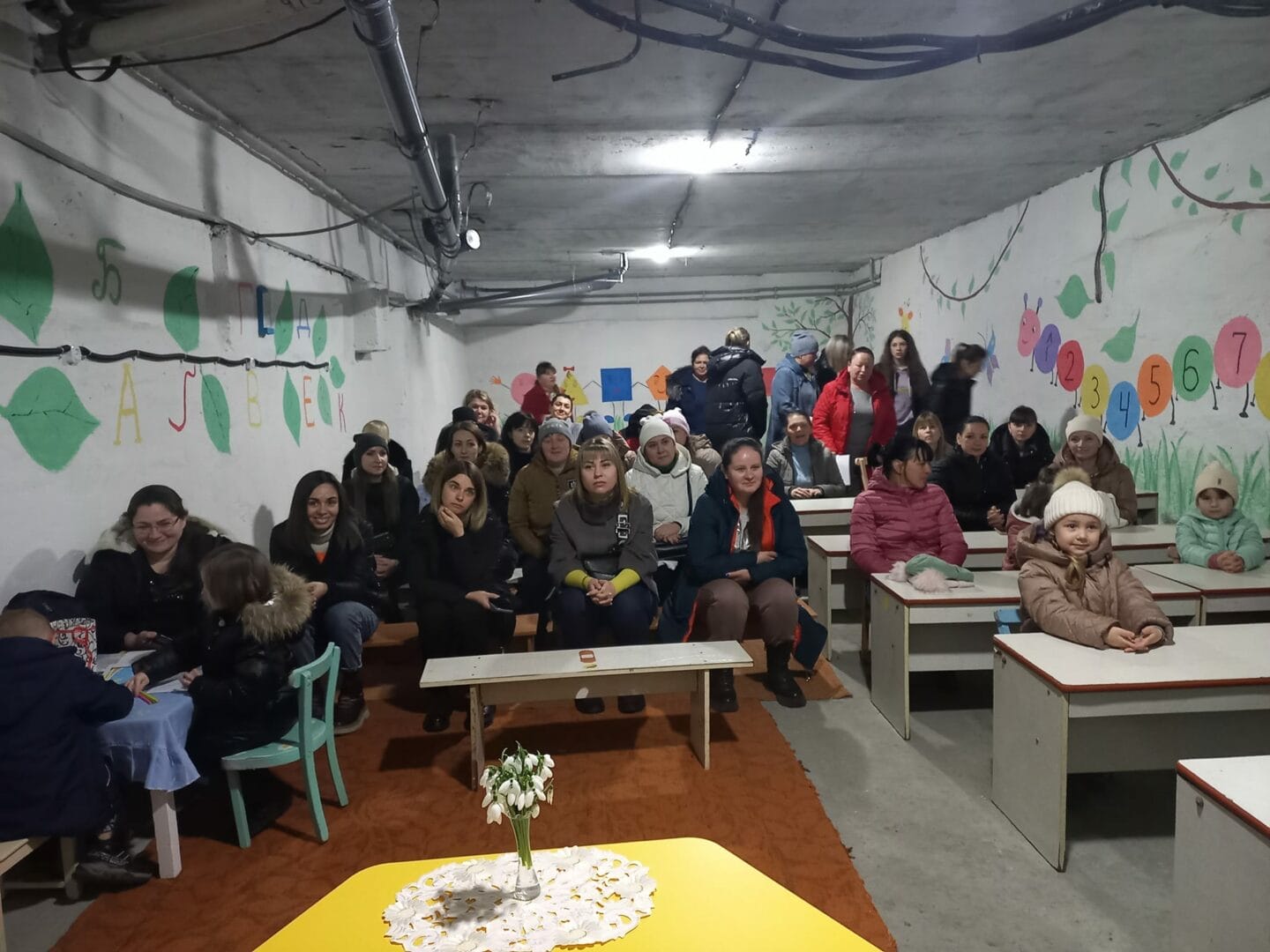
People of the Community
Since 2020, the Village Council of the Shabo Community has been headed by Pavlo Pavlenko. He was at the origins of the founding of the winery producing the well-known SHABO drinks, which is the village’s hallmark.
The head of the Community examines the experience of international colleagues and implements new approaches to work, improves the image, awareness and reputation of the Community entrusted to him. The vector of activities is aimed at the development and improvement of social and infrastructure projects in the settlements of the Community. His goal is to care for children, people’s health and youth, so that they would be willing to stay in and develop their Community.
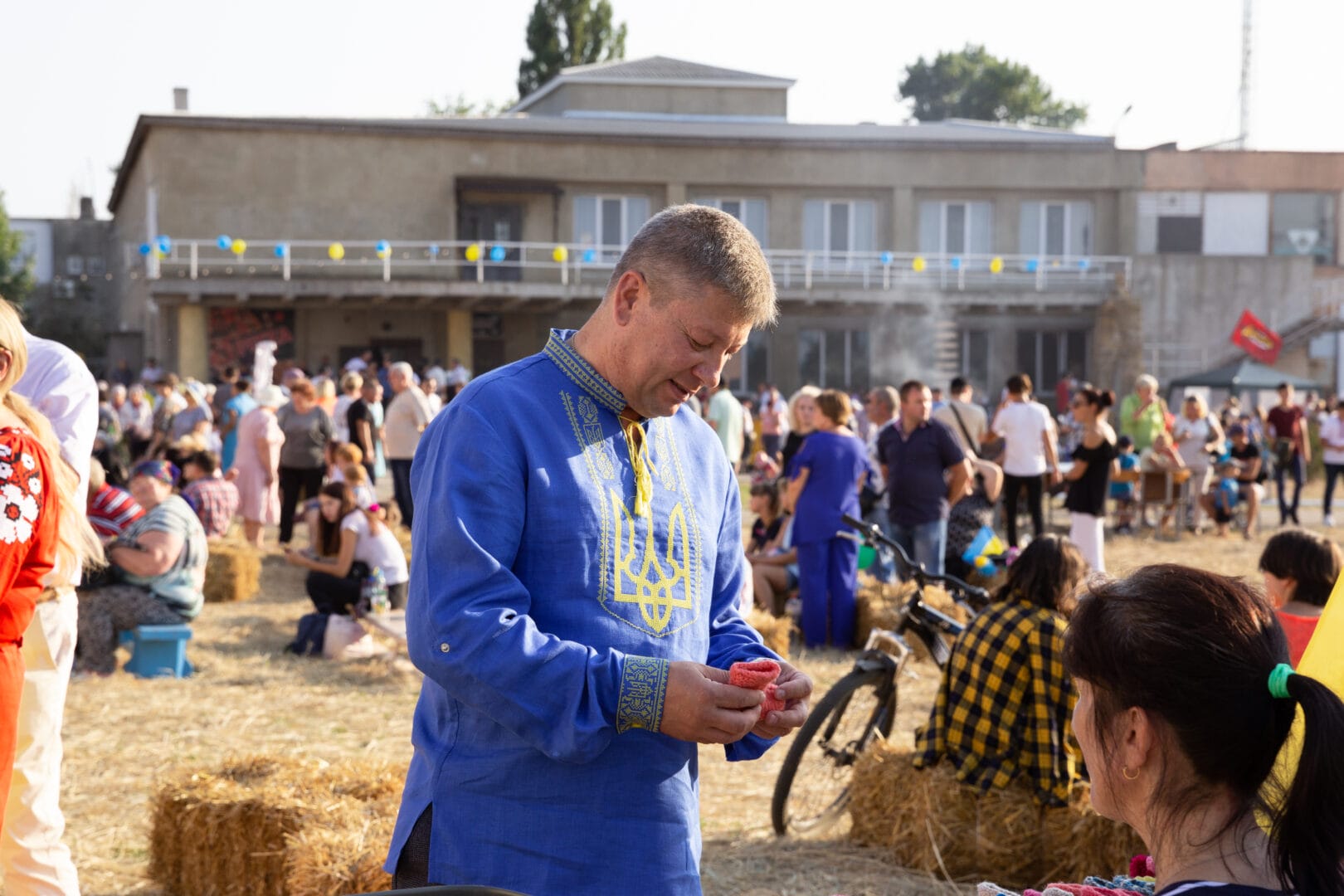
On the initiative of Pavlo Pavlenko, an artesian well has been drilled in the village of Bilenke for water supply as there was no water supply before. Renovations were carried out in the Community educational institutions.
The Community runs the Shabo Local History Museum. Mobile exhibitions are often organized there. Talented craftswomen give new life to old things. So, with an artistic taste, they create wonderful compositions from exhibits that are more than 20 years old.
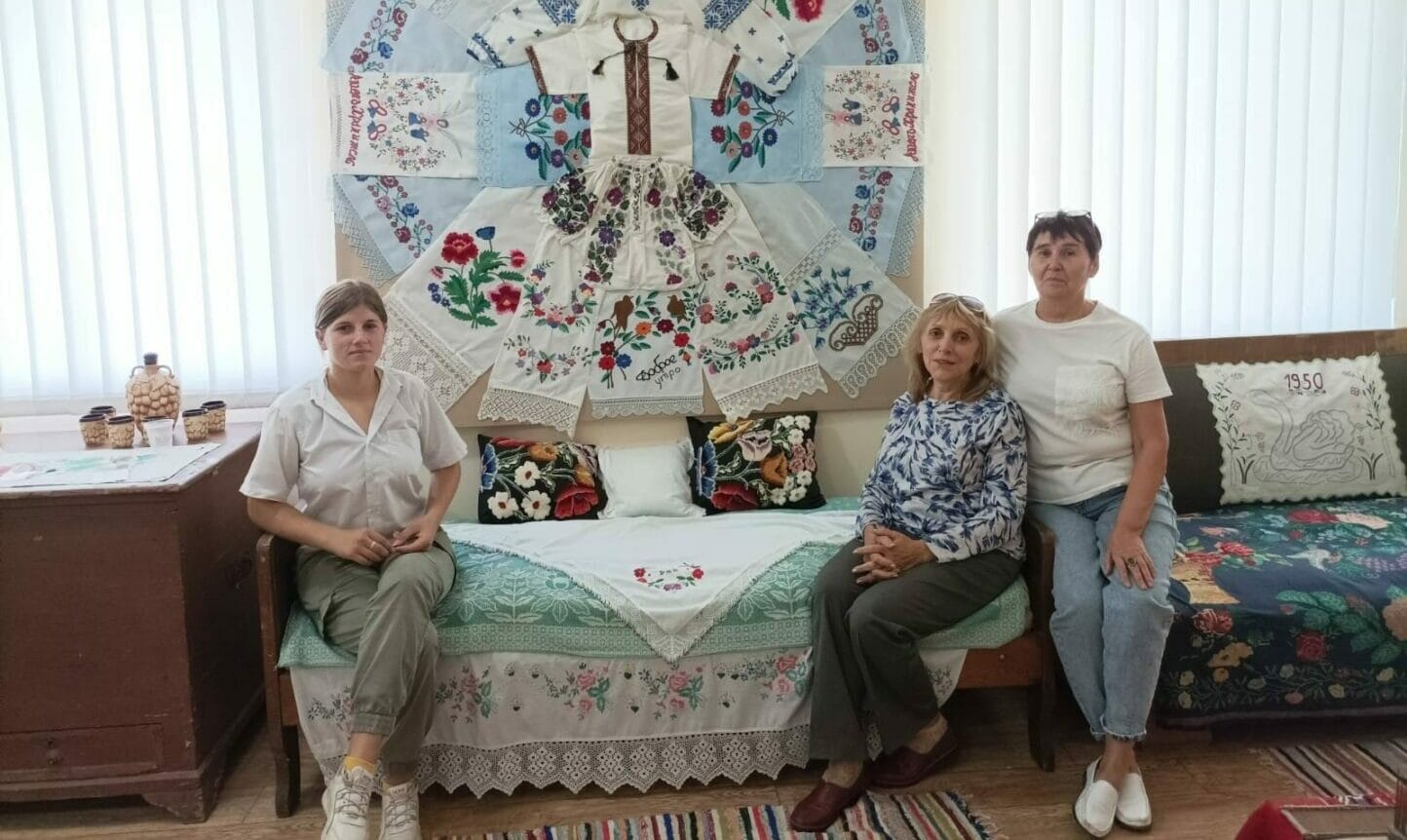
The Community is known for its handball team’s sports achievements and runs boxing and weightlifting sections. The Smuhlianka vocal pop group performs in the Shabo Community and is led by Olena Lavrionova. The band has been working since 2017, takes prize places and performs concerts for the military.
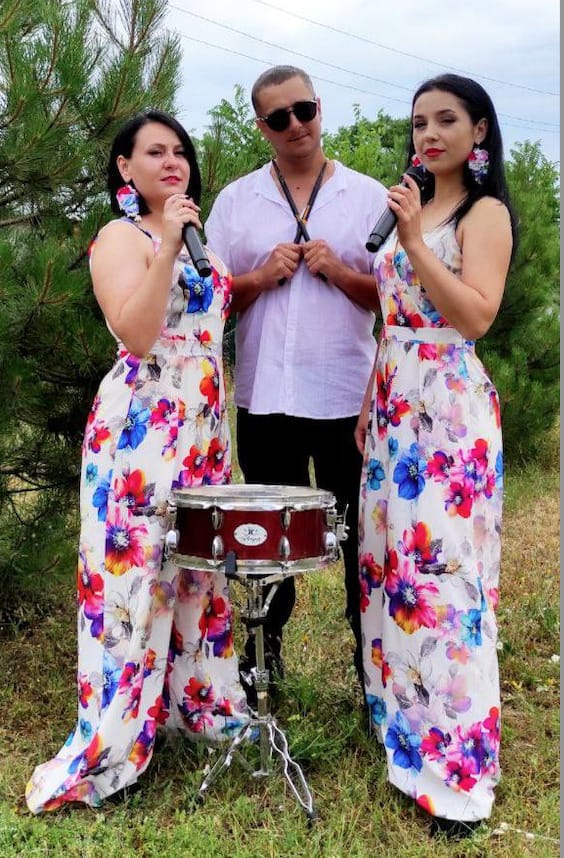
Every year, the most important holidays such as the Independence Day and Village Day were held in the territory of the Community, where each Starosta-headed district offered traditional delicacies, local craftswomen presented their products, and children and young people had fun.
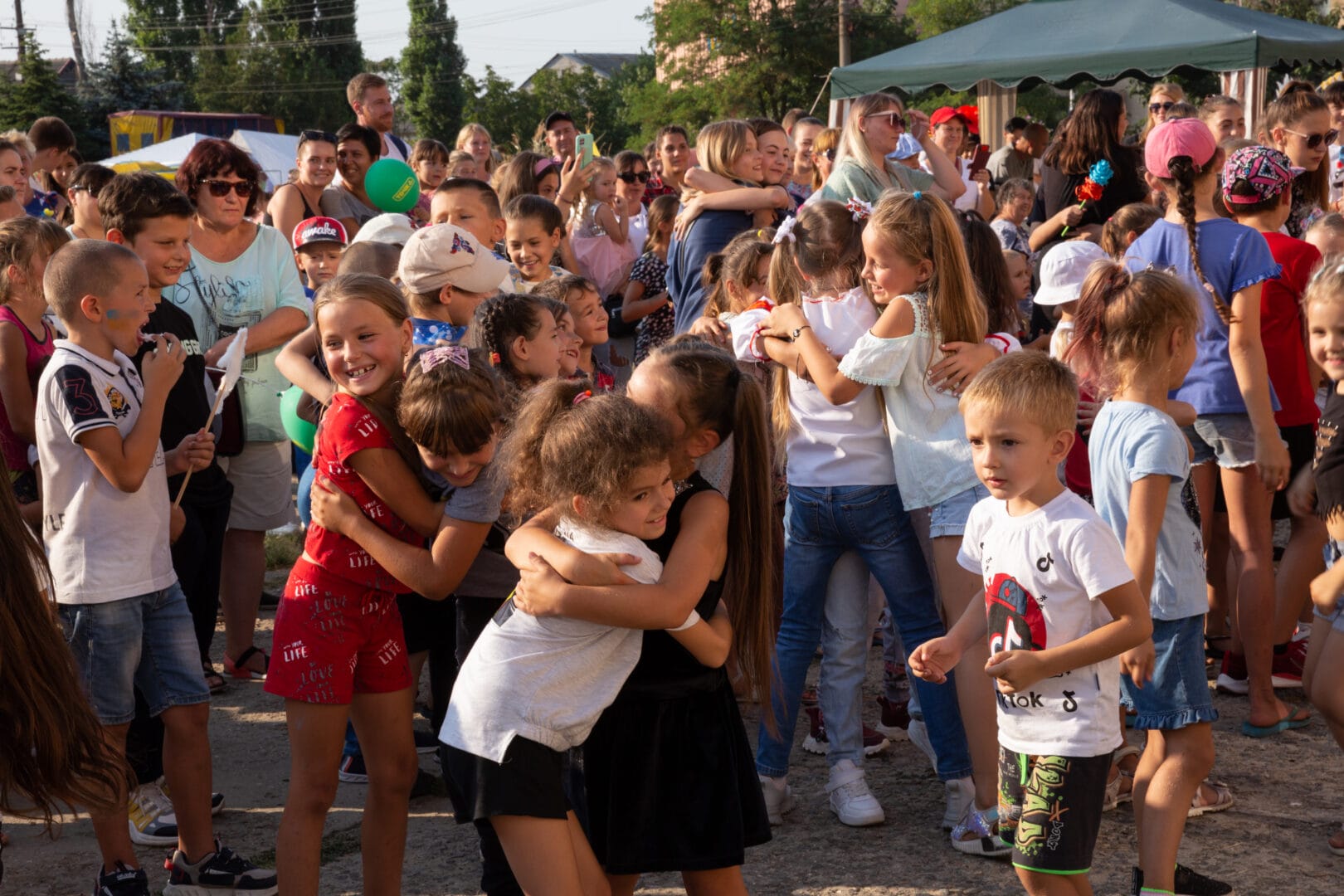
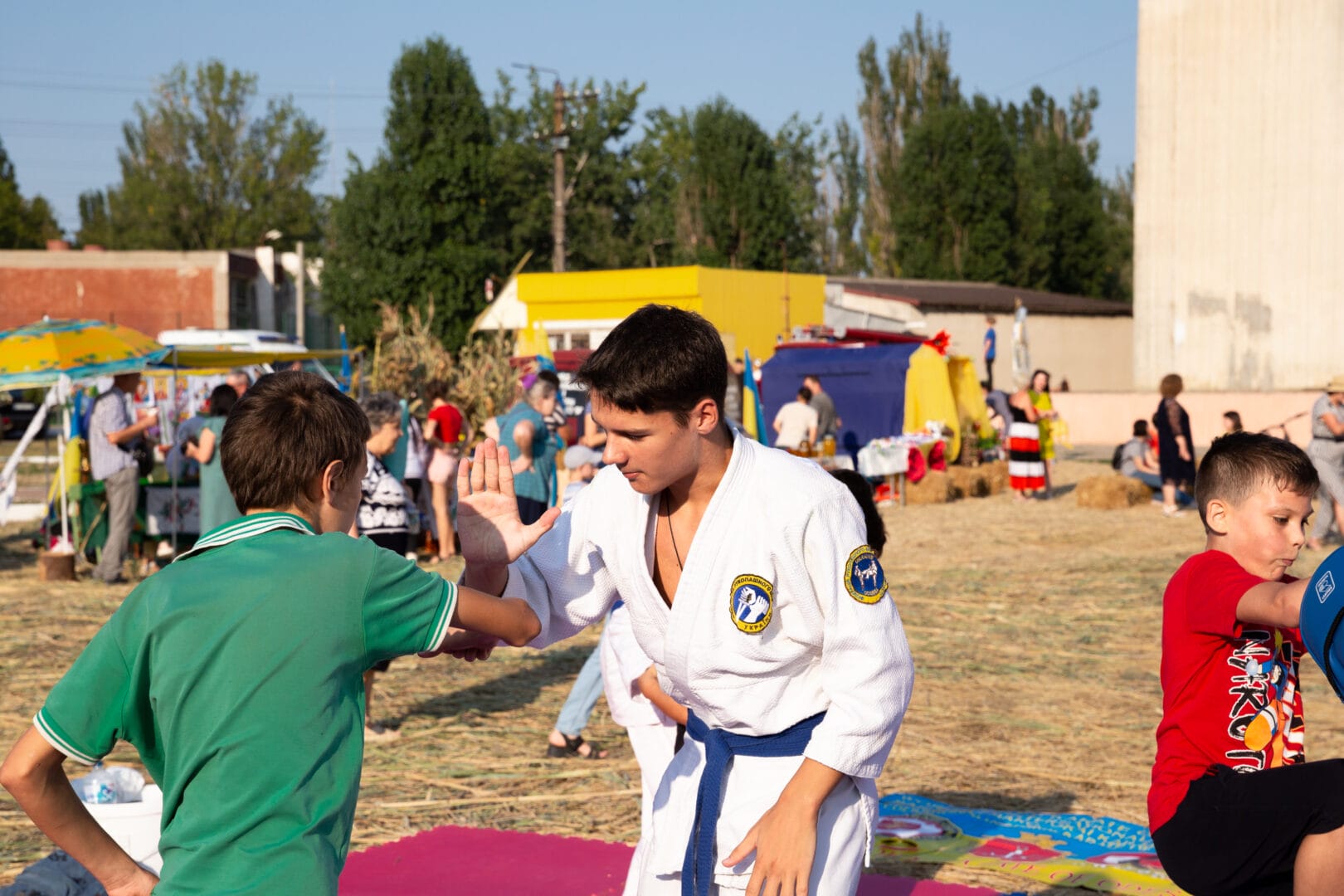
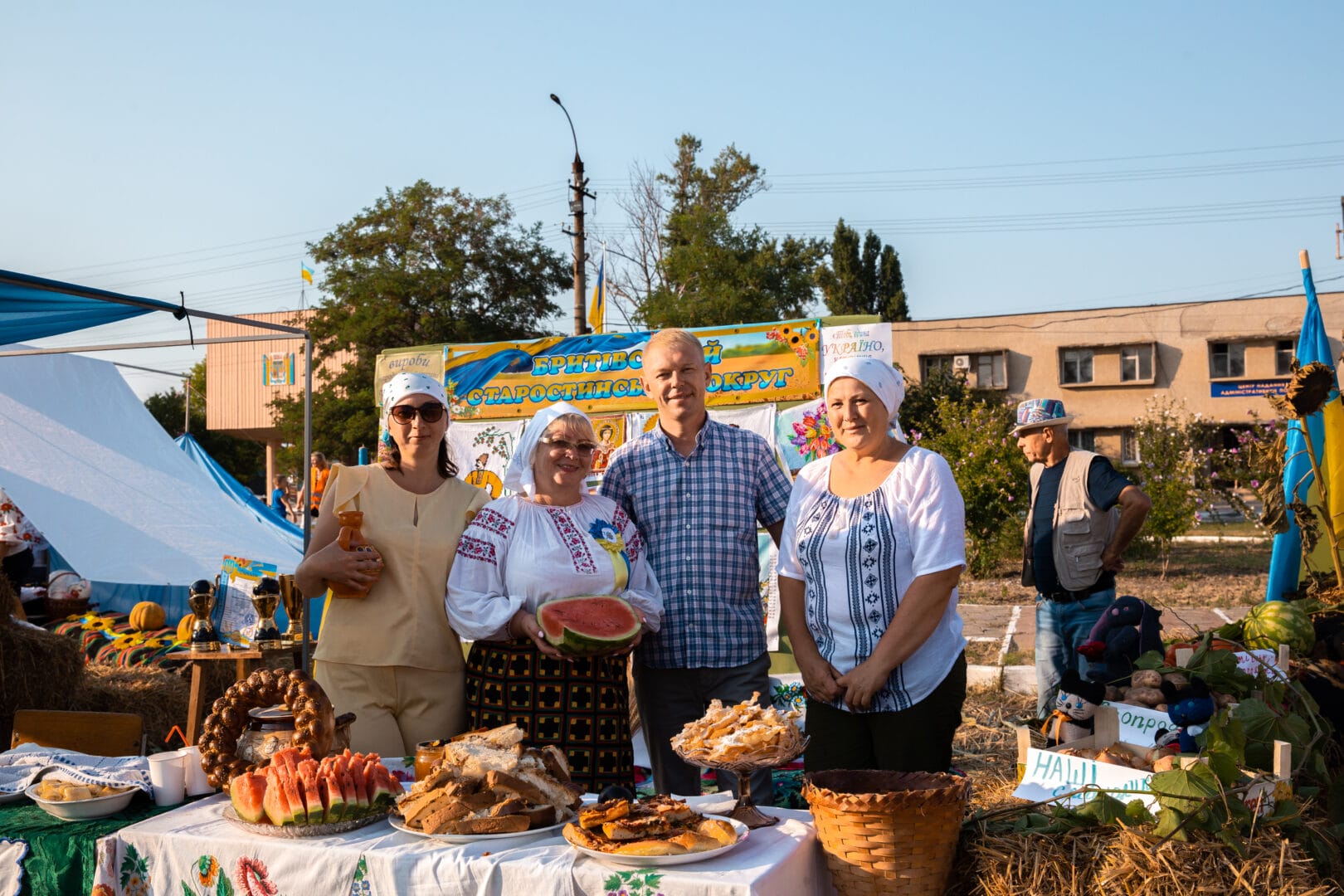
Development Strategy
Currently, the efforts of the Shabo Village Council are aimed at overcoming the consequences of destruction, socio-economic, cultural and other losses caused by the military actions of the aggressor country, as well as creating the conditions for rapid recovery and sustainable economic development of the Shabo Rural Territorial Community.
In order to eliminate the consequences caused by missile strikes, it is necessary to provide the municipal enterprises and the Shabo Fire Department with equipment and transport: a fire engine, a dump truck (truck) for the removal of large-sized debris caused by the destruction due to missile strikes; a bulldozer, a mini-excavator; a double cabin, a garbage truck.
They are working on the development of a project to create a waste processing plant in the territory of the Community.
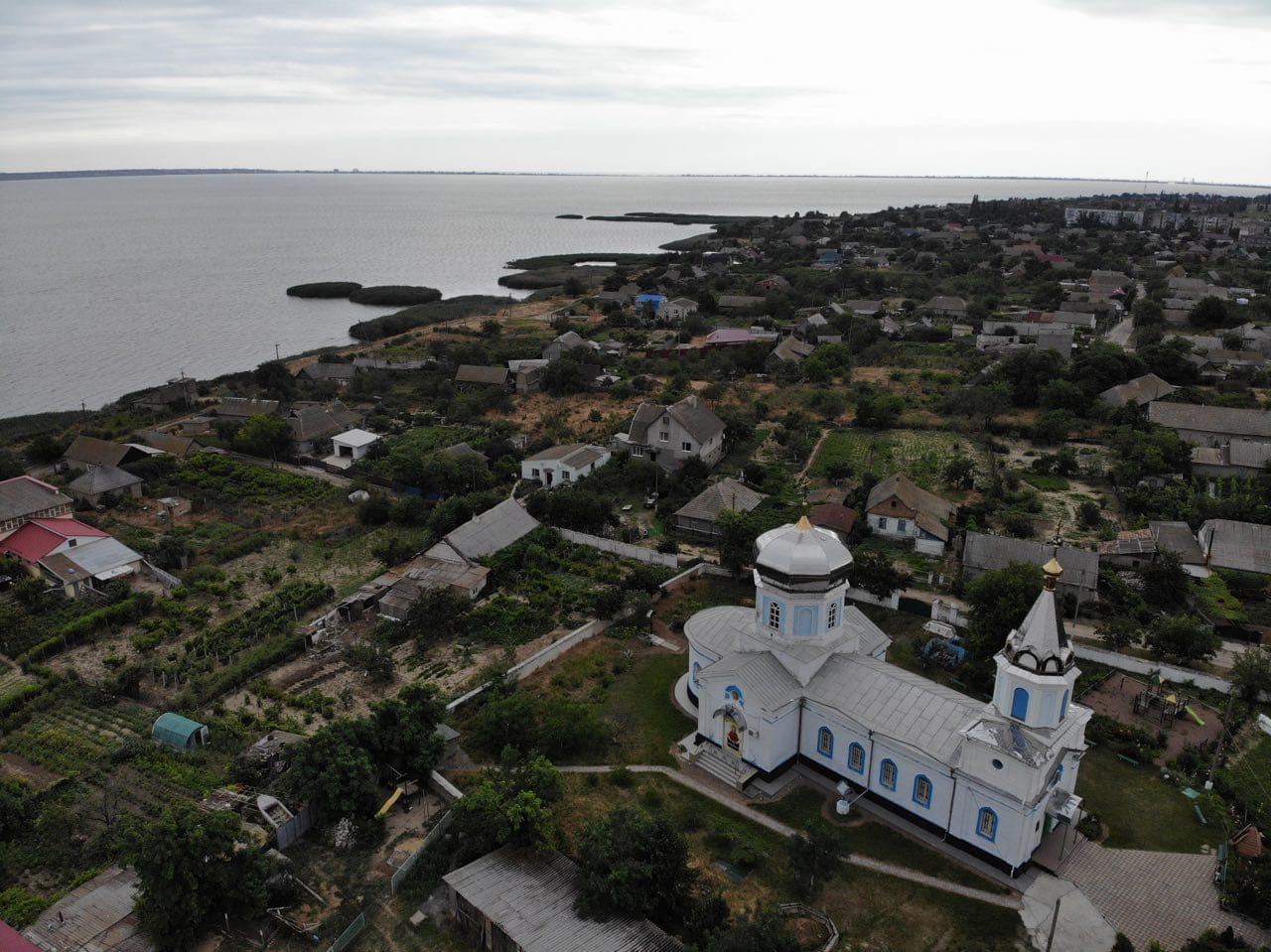
At the former maternity hospital, they plan to create a modern historical and local history museum, where exhibition, cultural and educational, educational and other spaces will function.
They are looking for opportunities to organize recreation for talented children: up to 20 persons in summer camps outside Ukraine in order to restore their psychological health.
They plan to reconstruct the culture centre to create the youth space, repair sports halls (handball, boxing, weightlifting), build an embankment with bike paths and bike parking.
They are working on the creation of the space for the psychological recovery of the Community residents, veterans, and internally displaced persons. There are plans to build a rehabilitation centre and housing for internally displaced persons.
In order to avoid an ecological and man-made disaster, they are working on the modernization of water management networks, the construction of a sewage pumping station and shore fortification of the estuary.
They have developed and constantly update BROWNFIELD and GREENFIELD plots for potential investors.
Sources
- Official website of the Shabo Rural Council
- “The tract, colony and village of Shabo: Archaeological and historiographical notes”, authored by I. V. Sapozhnykov, V. V. Levchuk
- Facebook page of the Shabo Community
- Facebook Shabo
- Website of Shabo Company
- Community Head Facebook
